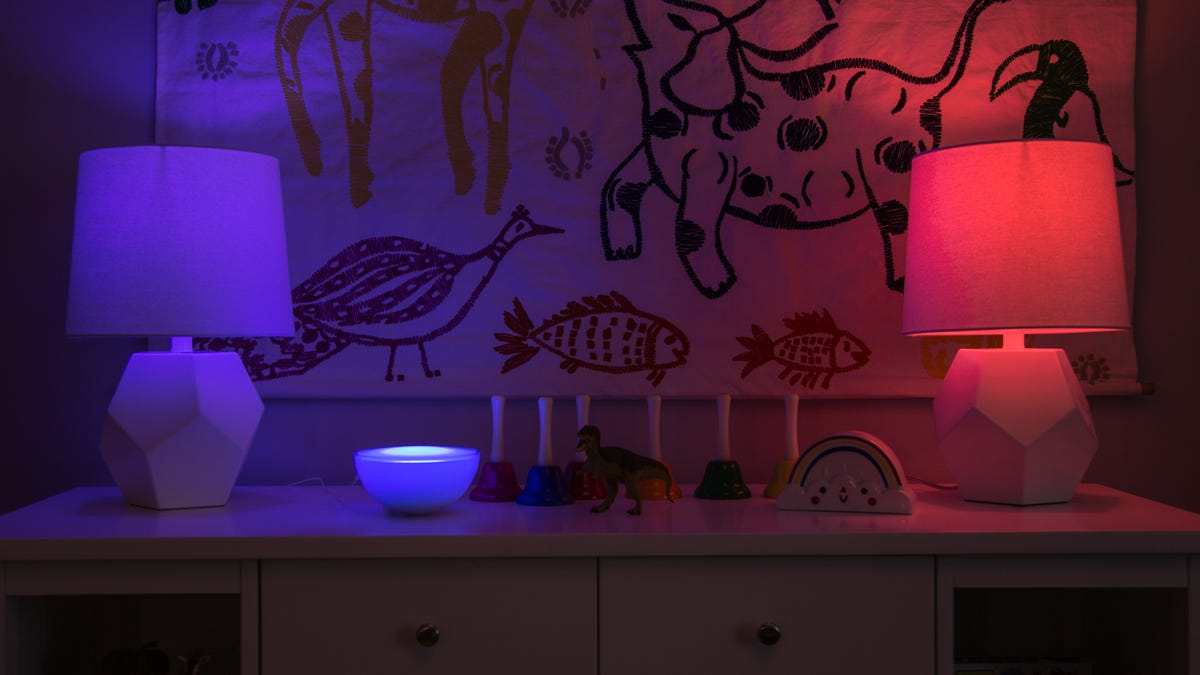2017: The year digital assistants for kids began to flourish at CES
How some companies are bringing the power of voice technology to the nursery, and why it matters.

I've spent days now, walking the show floors at CES , listening to pitches from baby- and kid-tech developers, and writing up analyses on all of it. I'm a smart-home reporter, so I knew coming into CES how ubiquitous Alexa and her retinue would be. But I wasn't prepared for how fundamentally it would affect kid-tech. If CES 2017 is any indicator, Alexa's biggest skill in five years will be nannying.
Here are three things I've discovered at CES about voice assistants for kids.
1. Not everyone can make voice assistants
Many of us are spoiled these days. We take Siri, Alexa and the Google Assistant for granted, and complain when we have to repeat ourselves to them. But guess what? I've watched at least three developers in the past two days repeat phrases over and over to their own proprietary digital assistants, searching for the perfect phrasing, as I check my phone for the time.
The CogniToys Dino.
There's a reason the best digital assistants come from companies with vast stores of data and capital, and we probably won't see too many compelling third-party voice controllers popping up anytime soon. In fact, the most successful companies using their own voice controls are the ones that shoot for more attainable goals, like the CogniToys Dino, which simply uses speech for games and basic commands.
2. You can't just add a goofy name to make a product kid-friendly
This isn't just kid-tech; it's smart-home tech. Every gadget has a different nonsense name, and it's only worse for baby-related gadgets (see Memoo, Snoo, Yobi, and so on.).
Mattel's Aristotle, with the included camera.
The best digital assistant for kids I've seen is Aristotle, and its developer Mattel spent its whole demo without accessing Alexa once, even though she lives on the same device. Instead, the company showed me how Aristotle -- which currently borrows pieces from Cortana -- is uniquely for kids. She can play white noise, monitor a sleeping baby with a camera, read stories with sound and light effects, play games, and even teach second-language lessons. Moving forward, this sort of intention must characterize voice assistants for kids if they'll have any sort of success.
3. Even the best ones don't really know what they're doing
The C-Way Memoo.
That's right -- even Mattel doesn't know what the effect will be of a digital assistant maturing alongside a child. When I asked one of their senior managers of marketing, she told me they didn't even plan on researching the effect in the future. Why? Because the technology is entering homes no matter what, so it might as well be equipped to engage kids.
Another device called Memoo, which also houses Alexa, distinguishes itself by allowing parents and kids to send messages back and forth between the app and device. I wondered as I looked at it if allowing a voice assistant to mediate even our most mundane interactions with our kids might be worth questioning. Aren't those interactions precisely what define parent-child relations? Should we simply accept the presence of voice assistants in the lives of our children because of the inevitable advance of technology?
Who knows? But I suppose, if I had Memoo, I could send my son voice messages while at CES, and he could hear my voice when waking up in a different time zone.

